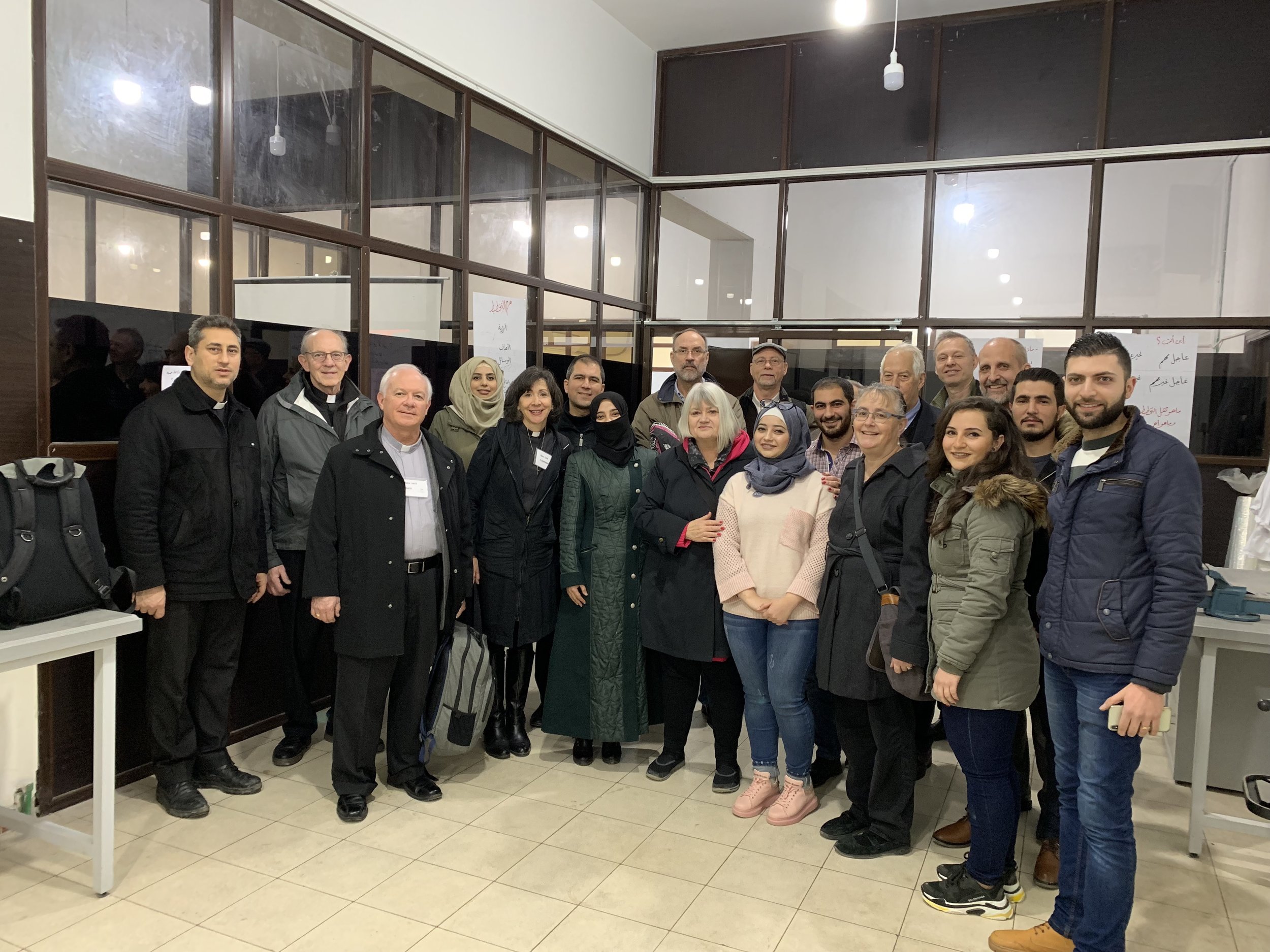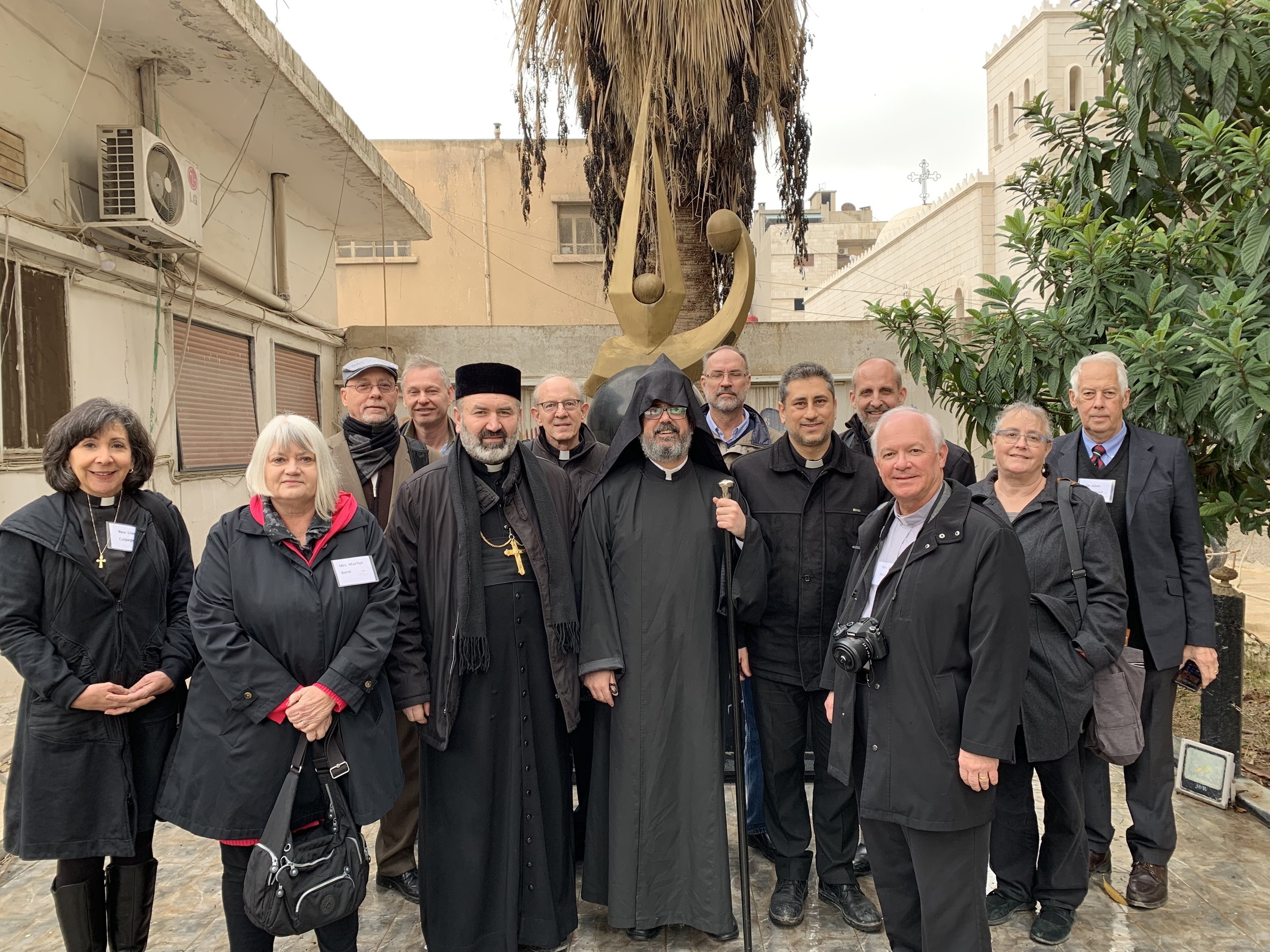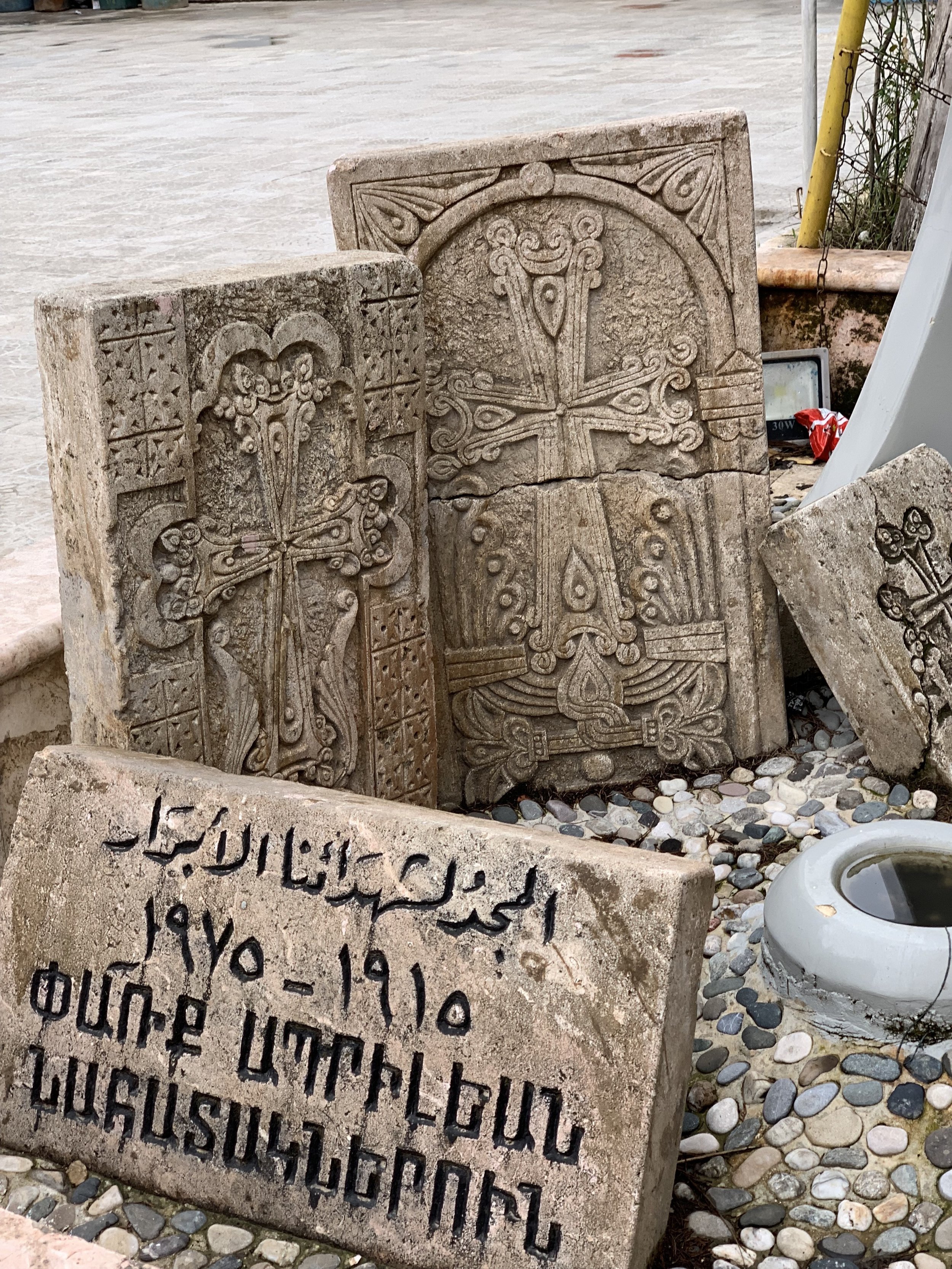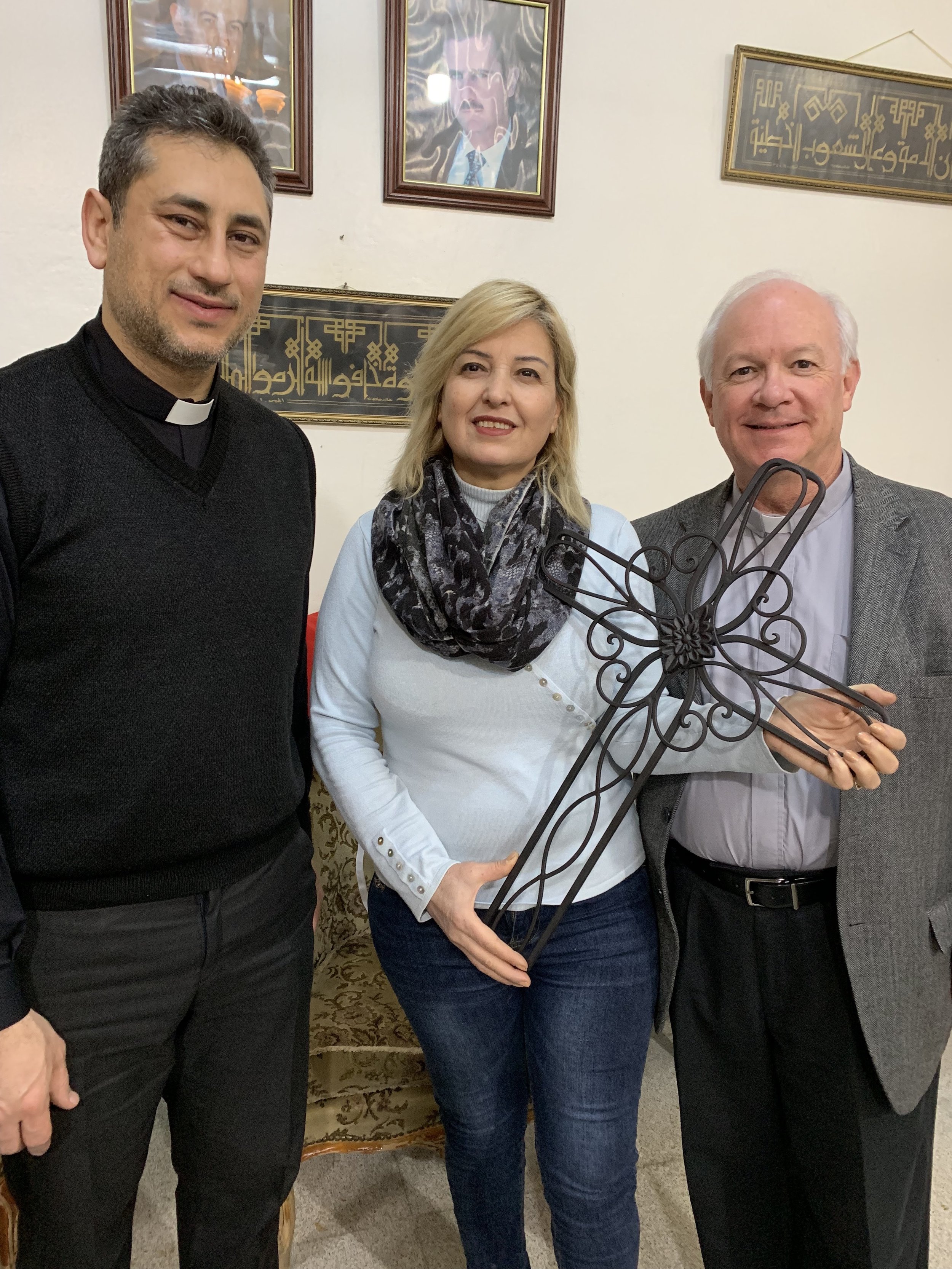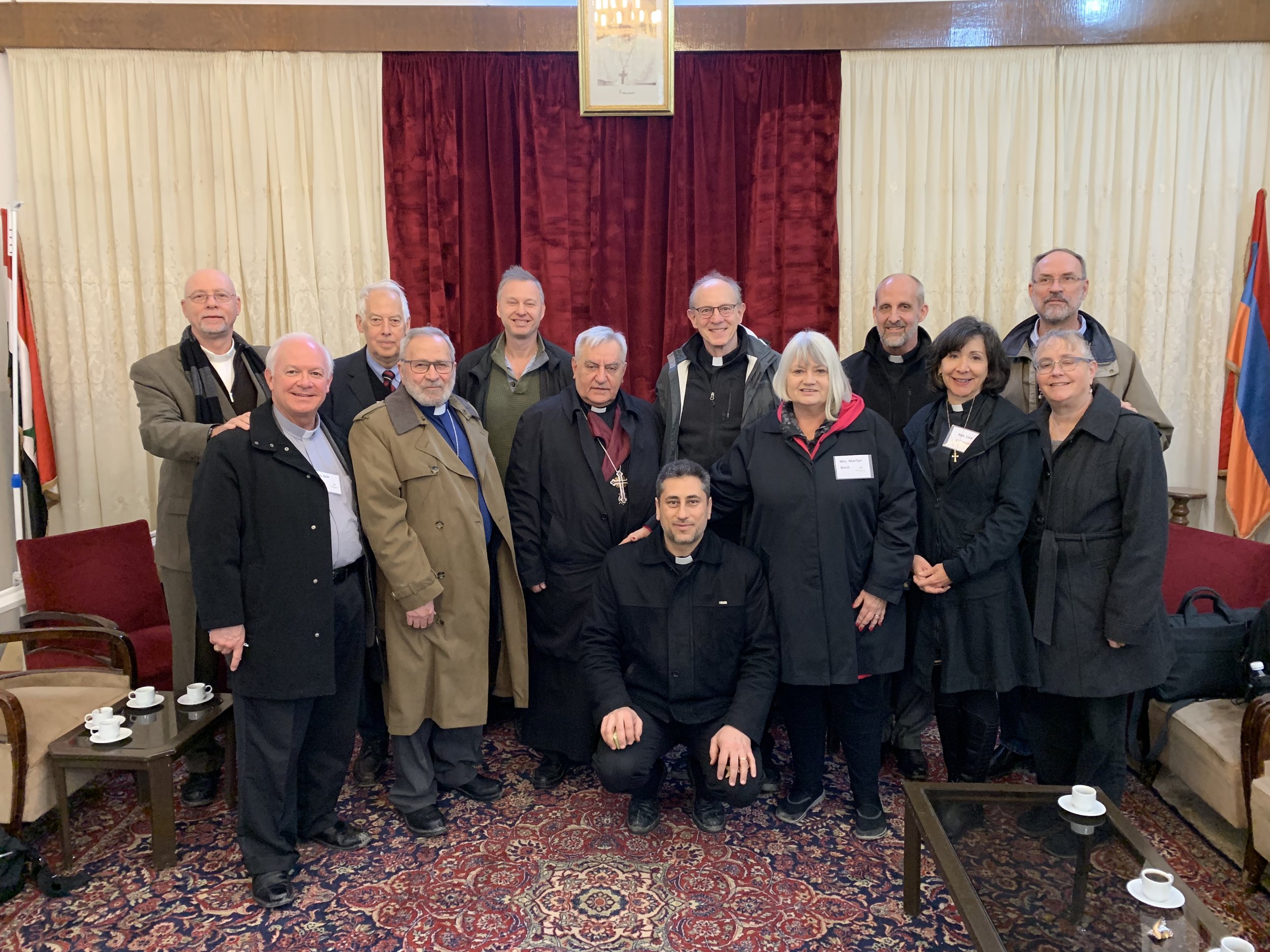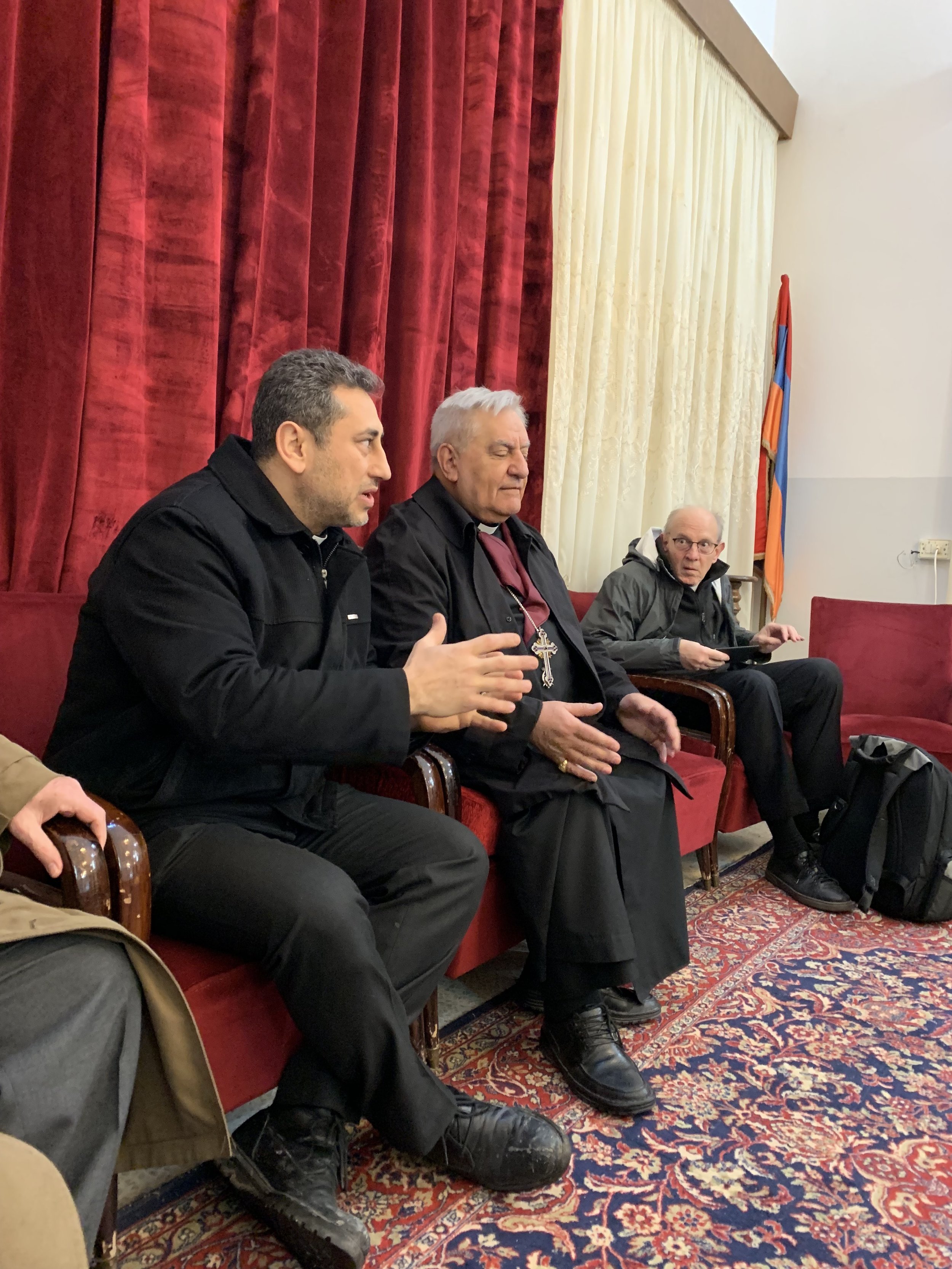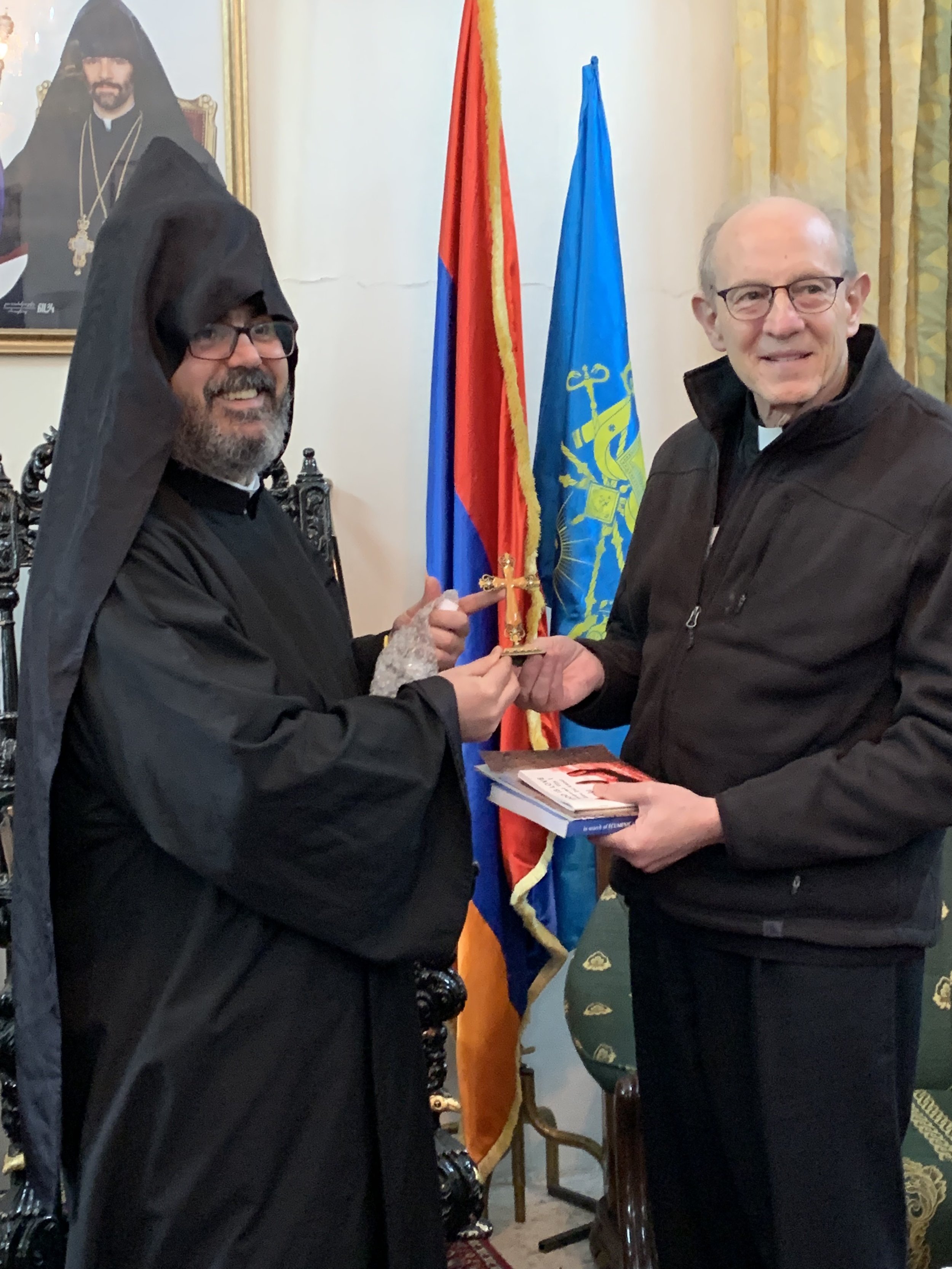Lebanon/Syria #7: Father, We Put This in Your Hands
by Julie Burgess, for the team
“Jesus went throughout Galilee, teaching in their synagogues, proclaiming the good news of the kingdom, and healing every disease and sickness among the people.” Matthew 4:23
Carlos led our devotion this morning as our team gathered at Qamishli church before breakfast with the elders. Using this one verse from Matthew’s gospel he illustrated how Jesus’ entire ministry could be summed up in four active verb phrases: he went, he taught, he proclaimed, he healed. He tied it all together so beautifully for us that I was determined to take this into our day to help me frame this blog for those reading at home.
One of those points especially struck me, as we are members of our own individual churches coming to be with the churches here in Syria. He quoted from Leslie Newbiggen about the phrase “proclaiming the good news of the kingdom,” as he shared that the church was not meant to be an institution but an expedition. Jesus sent the disciples. Churches were established, and this is good news, but what about the kingdom? He shared some words of a French Roman Catholic priest named Alfred Loisy: Jesus came to proclaim the kingdom and got a church instead. There is tension in those two statements: church as institution or expedition and church vs. kingdom. I think the witness from today eases the tension as we consider the lived out version of Matthew 4:23.
After breakfast we enjoyed the Sunday school of the Presbyterian church of Qamishly. Somewhere near 100 children gathered in the sanctuary and were led in the Lord’s Prayer by Josephine, a seventy-five year old longtime member of this church. (Marilyn, Lisa, and I know her from our time at women’s conferences in Lebanon.) As all the children and teachers and leaders bowed their heads and prayed I was struck by the revelation that Josephine had taught all of these leaders in Sunday School sessions in the past. The legacy of what she had learned was now being passed on to a third generation: teaching in their synagogues. They sang and danced to a song we have learned while here: J-O-Y. J is for Jesus, O is for Others, and YYYYY is for you and you and you and you and you! Look out when we come home because we know all the actions that go with this.
It is hard to leave the action of Sunday school here, but we were called to our next stop. The church in Qamishly works with the United Nations Development Project (UNDP) in a number of ways. In the lowest level of the evangelical school we visited yesterday and that Rob and Mike spoke of in their blogs, is a level that is now occupied by a medical center that provides prosthetic legs to people injured in the war, and healing every disease and sickness among the people. This program, which began just five months ago in Qamishly, is the fourth center for this kind of work in Syria. Medical doctors and technicians are giving new limbs and new life to people who have been knocked down by this crisis, as it is referred to here. One man from Raqqa returned to his home with his family after liberation from radicals. When he opened the door to his home a booby-trap bomb exploded and severely injured him. Although his family was safe, he lost both legs above the knees. This center has measured him, fabricated two new custom legs, and given him physical therapy. Since this is a center that ascribes to a vision of holistic healing, they are also working with him to find him a job so that he can continue to provide for his family.
Jesus went throughout Galilee…proclaiming the good news of the kingdom is not hard to see today either. As Carlos explained this morning, Jesus didn’t go to Jerusalem where the pious and educated religious people were found, but went to the backwater of Galilee, to work among the outcasts and the marginalized of the world. In a place like Qamishly, the marginalized have been arriving through eight years of war. As ISIS and other factions have pushed Christians out, they have come to places of refuge. Qamishly is one of those places up in the northeast that has seen many Armenian, Assyrian, and Chaldean Christians come as they have lost their homes and fields. We visited two bishoprics today that are working hard to gather in these people, one Armenian Orthodox and one Armenian Catholic. We also met a Syrian Orthodox priest. All of these churches, as well as our own Presbyterian family, are working ecumenically to provide what they can in physical and spiritual succor. Reaching out not only to Christians, they proclaim the kingdom to Muslims, Kurds, and all who need help by meeting the needs they can.
All of us were struck especially by his grace, Bishop Antranig Ayvazian of the Armenian Catholic Church. Firas Ferah, our host in Qamishly, referred to him as his spiritual big brother, and it was not hard to see why. A man of great learning and experience, he spoke to Carlos in fluent Spanish, to Mike in fluent French, and to all of us in nearly perfect English, he spoke of his native home, Qamishly, and country, Syria. His message was one of authority as if from God directly: Syrians must stay home and stay strong. In a country known always for its tolerance, of the love of neighbor, they must resist the forces of empire (103 countries have sent invaders here in this crisis) to continue to model what kingdom looks like. A man who could have passports of almost any country has resisted, holding only a Syrian passport. He has been planted here by God and was quite clear that his motivation in loving all of his neighbors – not just Christians! – comes from the word of God. We are commanded to love our neighbor, and in Syria that neighbor is all who call this home.
As people who have come on a journey to be with the church, we are glad to know that the church is here. It is alive. It is in the flow of Jesus’ active ministry. Its expedition through eight years of crisis has been to go, to teach, to proclaim and to heal. Our prayer for them comes from the litany that began our morning as shared by Carlos: Father, we put this in your hands.
Julie Burgess, West Hills Church, Omaha, Nebraska

